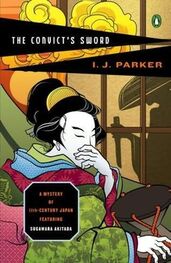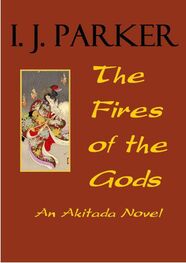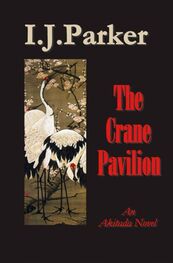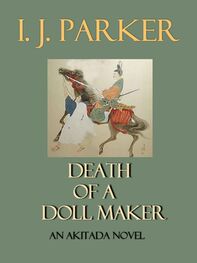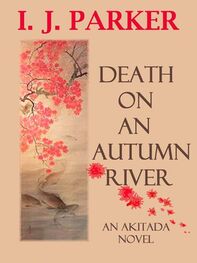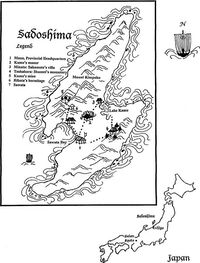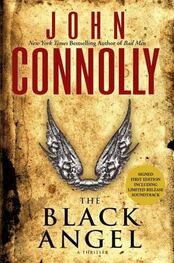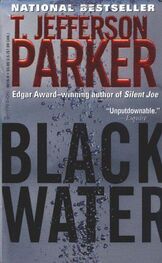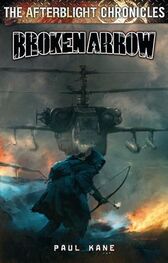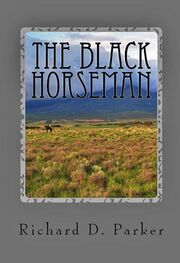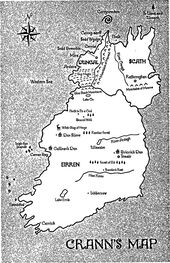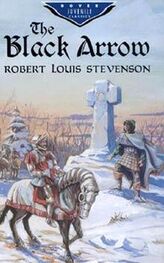The old man nodded.
Akitada stared at him. “Good heavens, man! You were the older son, the heir; you were the pride of the Uesugi clan. More importantly, you were innocent of the murders. Why did you not stay and fight for your birthright, for the birthright of your son?
“Because I was guilty.”
“No.” Akitada tapped the old lord’s confession on the desk between them. “It was your brother who committed those murders.”
The priest said sadly, “Poor Maro. We met in the forest one day, you know. At first he didn’t recognize me. I was greatly changed, you see.” He gestured at his clothes and beard. “But I spoke to him, and he fainted. Perhaps he took me for a demon or thought I was seeking vengeance, I don’t know. When I saw what I had done, I went away. They say he went mad after that.”
“Not mad. He went home and told his son that you were alive. Makio locked him up in the north pavilion.” Akitada reached for the rolled paper and pressed it in the old man’s hand. “Read what your brother wrote before he died,” he urged.
The priest put the paper back on the desk. “It changes nothing. What is written is of things long past. Only the heart knows all the gains and losses.”
Baffled, Akitada ran his hand through his hair. He was getting drowsy. “I don’t understand,” he complained. “Why should your brother confess to a lie on his deathbed? How could you have been guilty? Nothing makes sense.”
The yamabushi picked up the conch shell, and rose. He fastened the conch to his belt, took up his staff, gave a last tender touch to the box on the desk, and said, “Farewell, Governor! You should be able to sleep now.”
Akitada stumbled to his feet and barred the way. “Wait! You cannot leave like this! I must know the truth. How could I have been so wrong? After all that I learned of your past, both before and after the murder of the young woman and her child, I cannot believe you capable of such a heinous crime.”
The old man looked at him, and something in the black depths of his eyes made Akitada back away. “All men,” the master said, “are naked under their loincloths. Remember that. I did not bend my bow nor aim my arrow on that golden autumn afternoon, but they died for my offense. The boy was not my father’s son. He was mine. That is my guilt, and it caused their deaths.” He gestured toward the game on the desk. “That shell game was my gift for her. I ordered it before her death. The chrysanthemums and grasses of our forbidden love. She was named for that flower, and our child was the young green blade of grass growing up in her arms. When my brother found out, he killed both of them-out of respect for our father and for our family honor.”
That Akitada did not believe, but the enormity of the other man’s tragic transgression and loss left him speechless. He stumbled to his desk and picked up the box. “Here,” he said, offering it.
The priest raised both hands in refusal. “No.” He smiled a little and said, “I have met your lady and saw that she is with child. When you become downcast again over what cannot be changed, remember: To have her is like having the sun and the moon in your sleeve and holding the universe in your hand. You will need to think of that often in the future.”
Barefoot and bare-headed, his lean black frame covered by the rough hemp and skins, the yamabushi bowed with a nobleman’s grace and softly padded out of the room.
Akitada sank down on his pillow still holding the box. Weariness overwhelmed him, and he looked toward the bedding Tamako had spread for him in the corner. The blankets looked strangely tangled and lumpy. He put the game down and went to investigate.
When he peeled back the layers of quilted silk, he uncovered two soft brushes of glossy black hair, each tied with red silk cord, and a small boy’s rosy cheek and silken lashes. Toneo was fast asleep, his round childish hand curled about Akitada’s flute.
He covered the child again, and looked about the room. Where was he to sleep? Then his eyes fell on the game.
When he slipped into Tamako’s room, she was huddled under the bedding. But he knew she was awake and sighed. She sat bolt upright, looking at him, her eyes large and tragic in the light of his candle.
“Tamako?” His voice encompassed all his grief, and guilt, and pain, and utter, utter weariness.
Wordlessly she reached out to him, the paleness of her skin touched by the golden candlelight-and he went into her arms.

